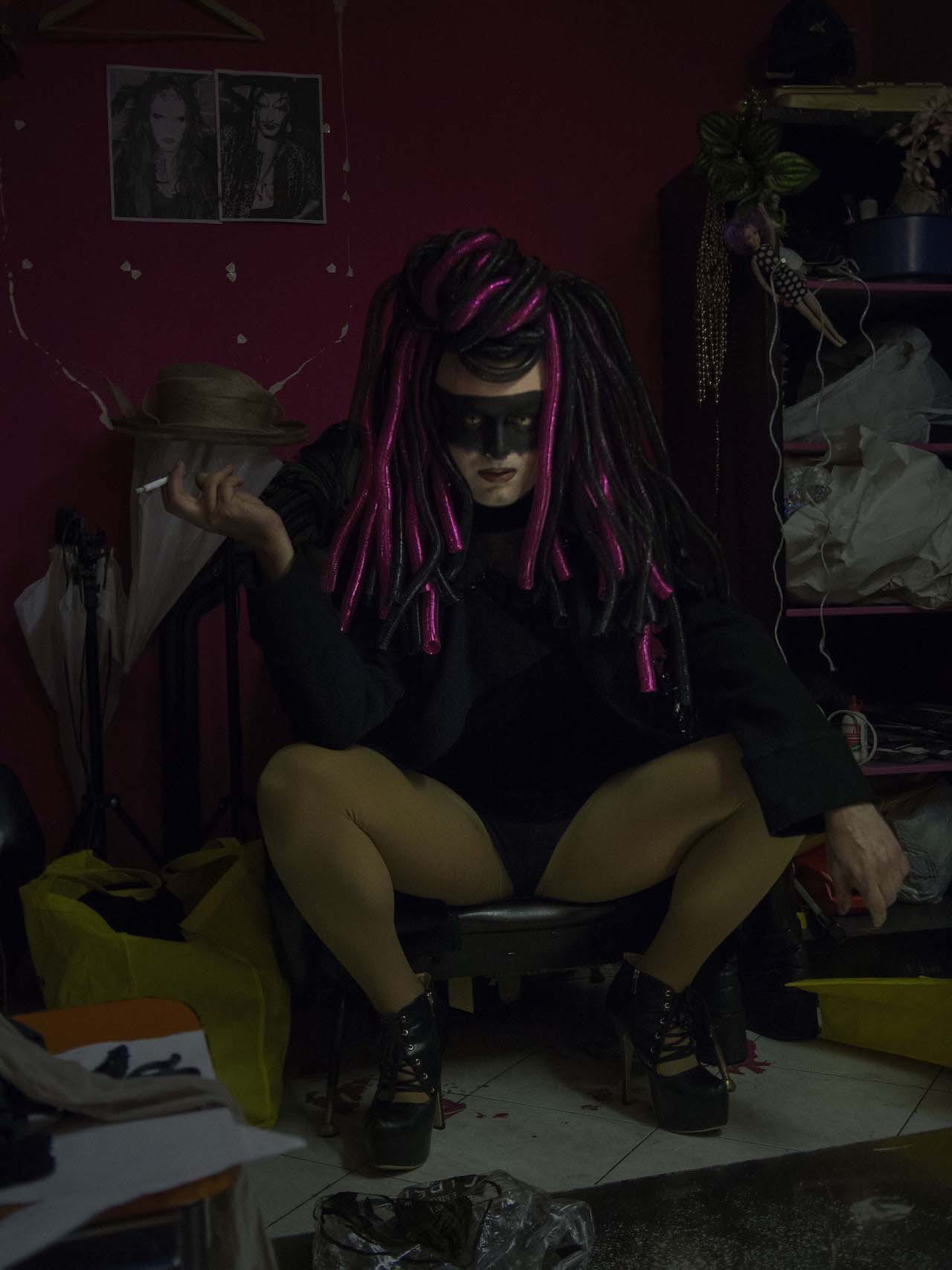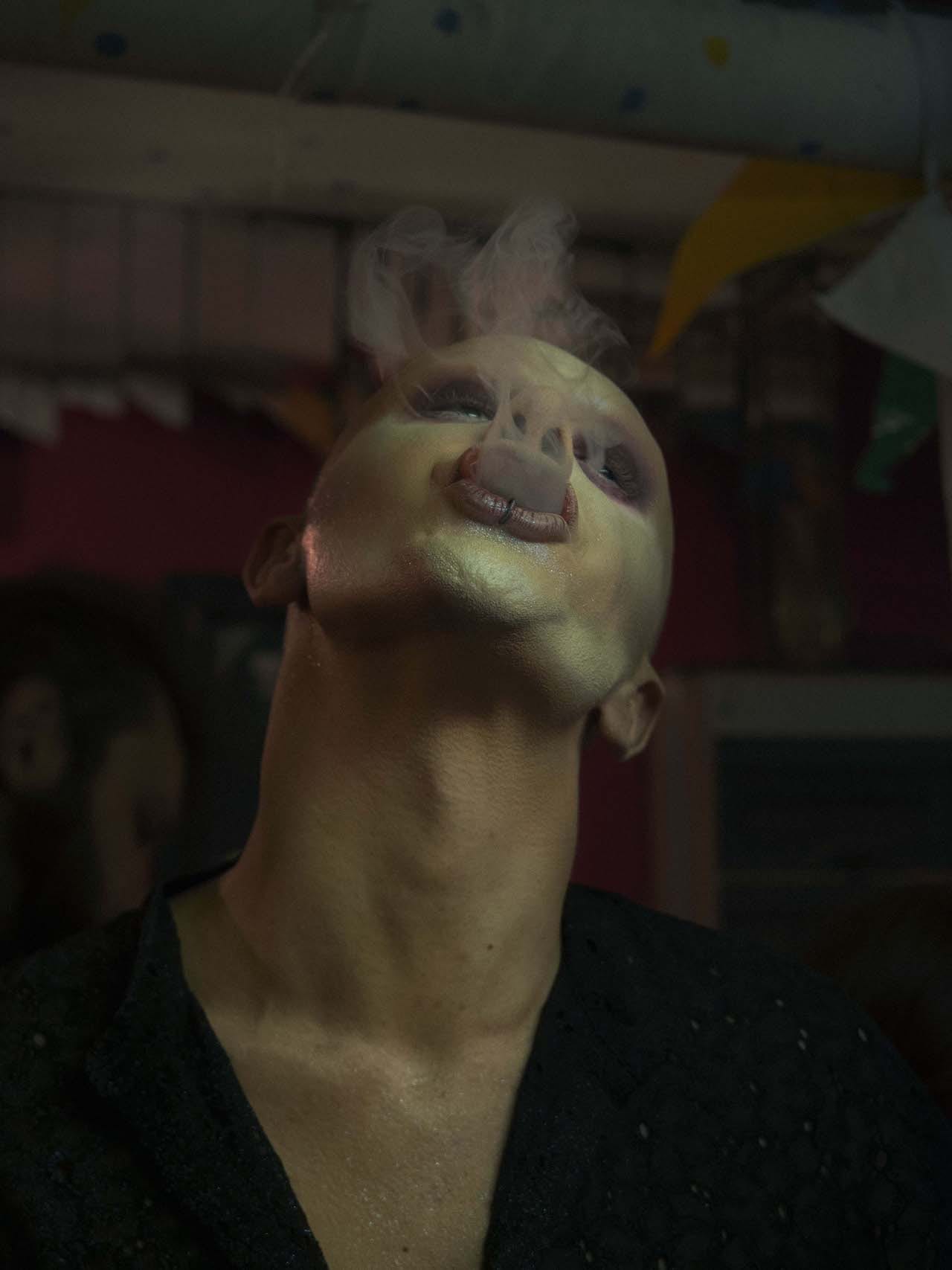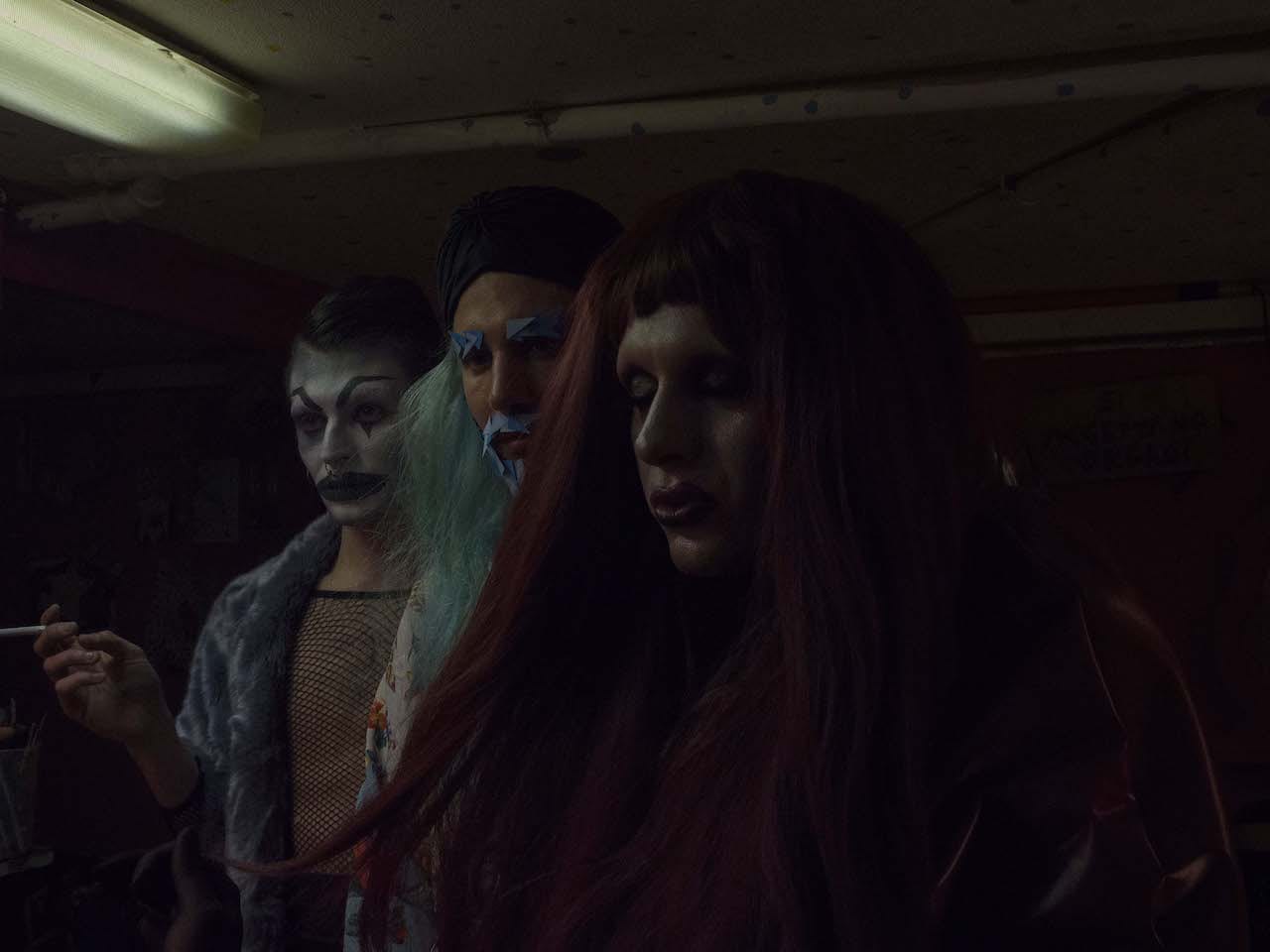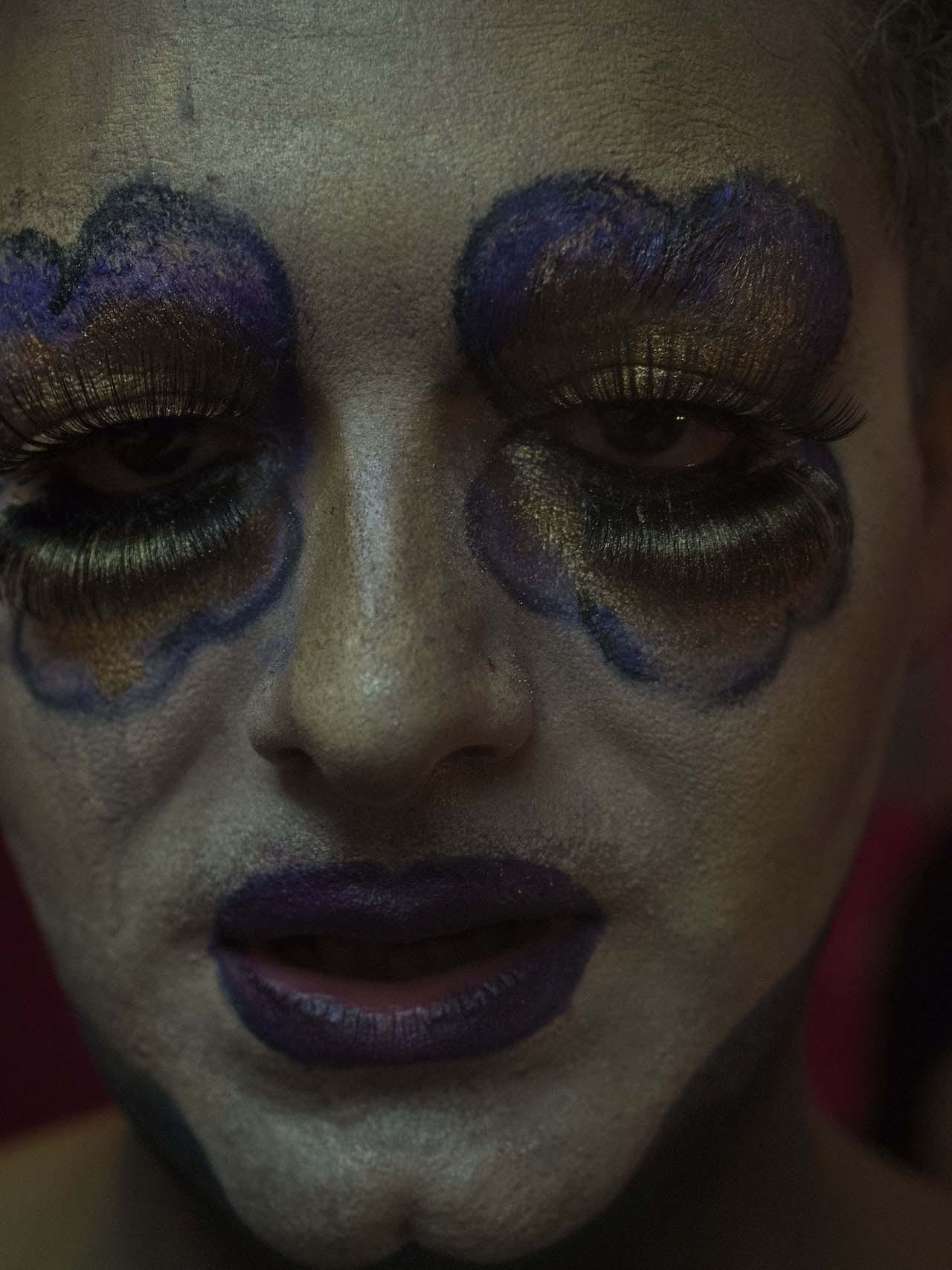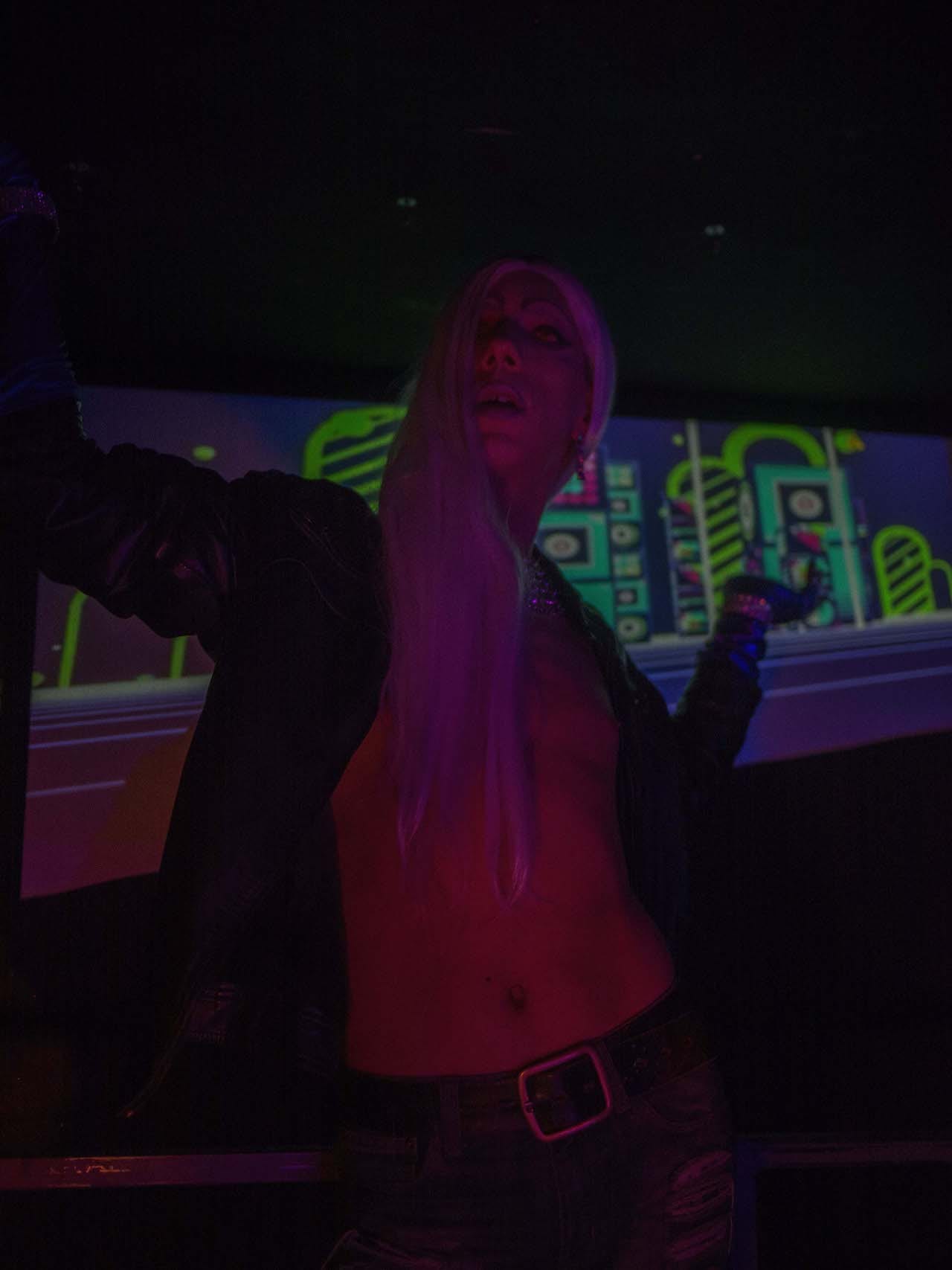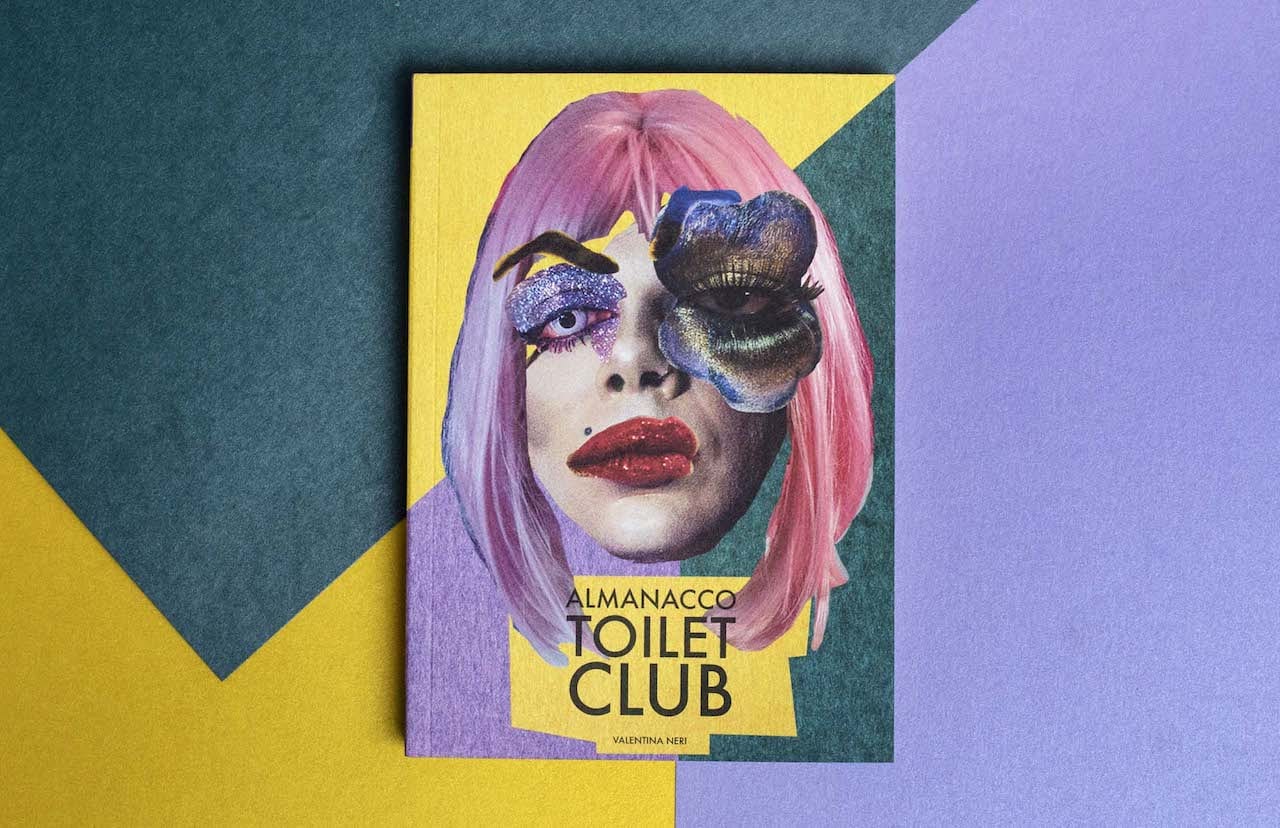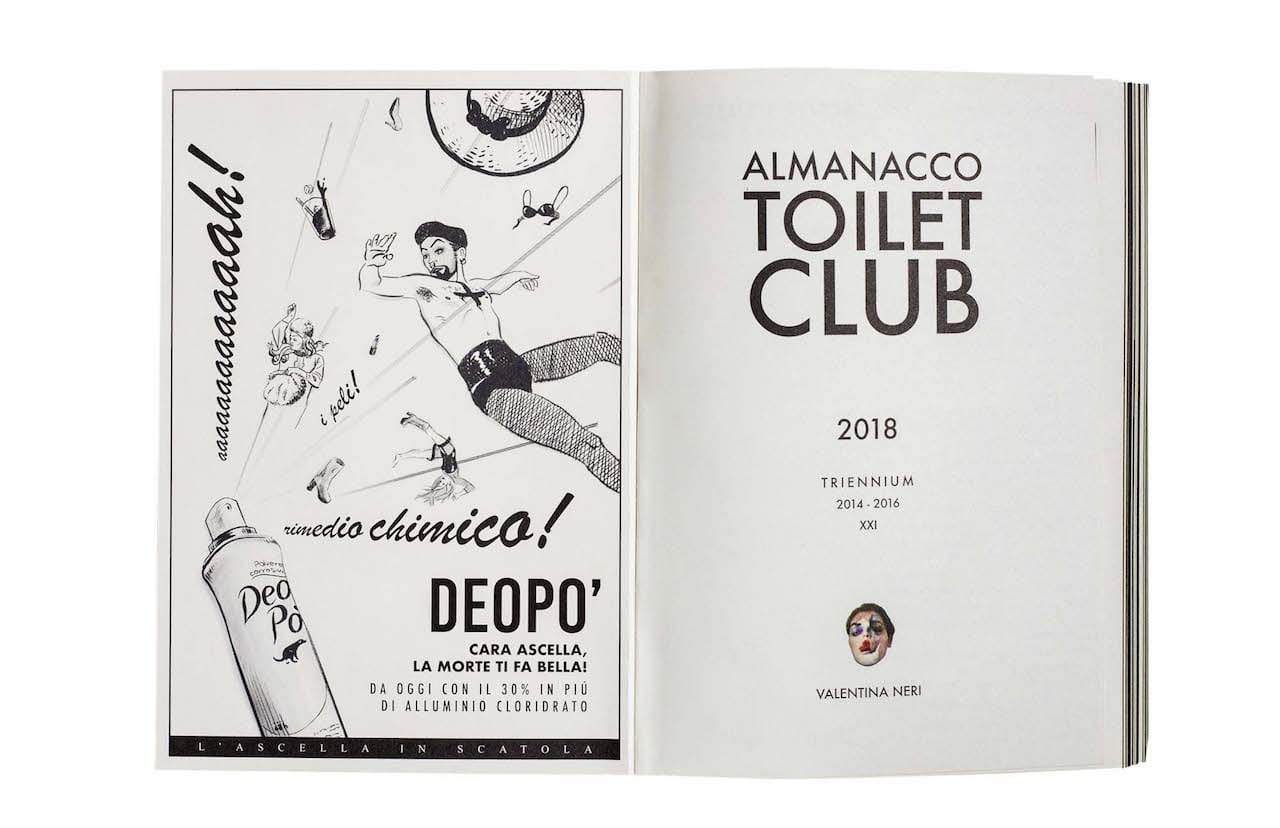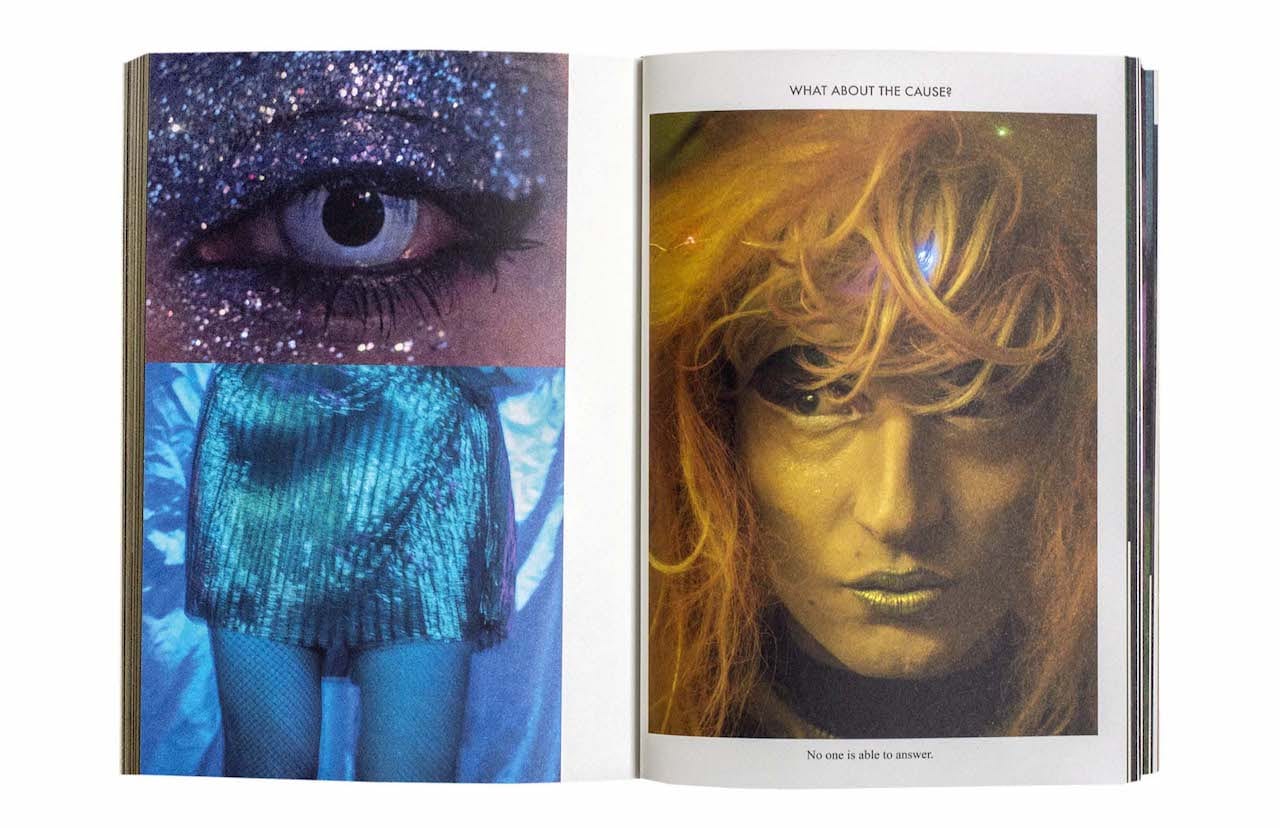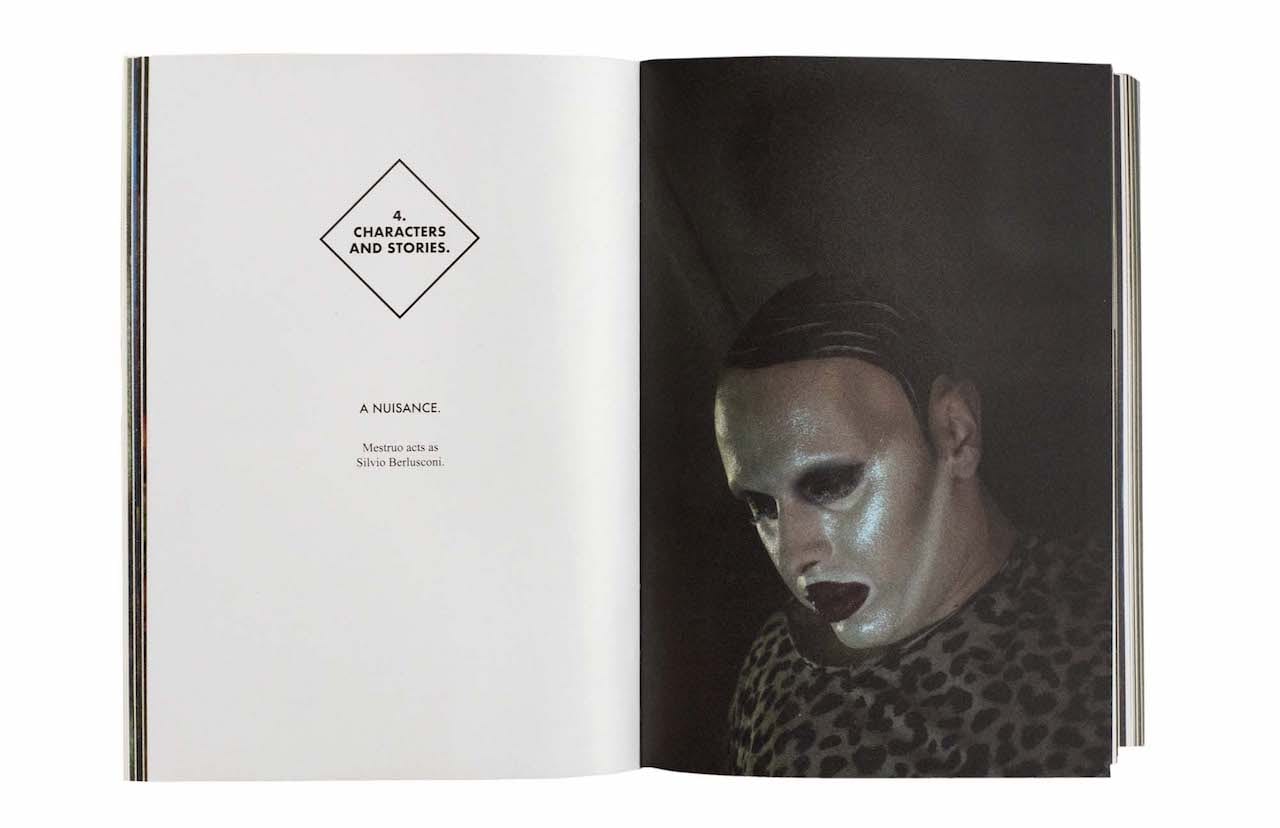27-year-old photographer Valentina Neri’s first book, Almanacco Toilet Club, is playful and bold – just like her subjects. Shot between 2014-2016 in one of Milan’s most important gay clubbing spots, Almanacco Toilet Club captures the scene’s colourful atmosphere and eccentric characters. BJP catches up with Neri about the book’s experimental design, her process, and Milan’s LGBT+ community.
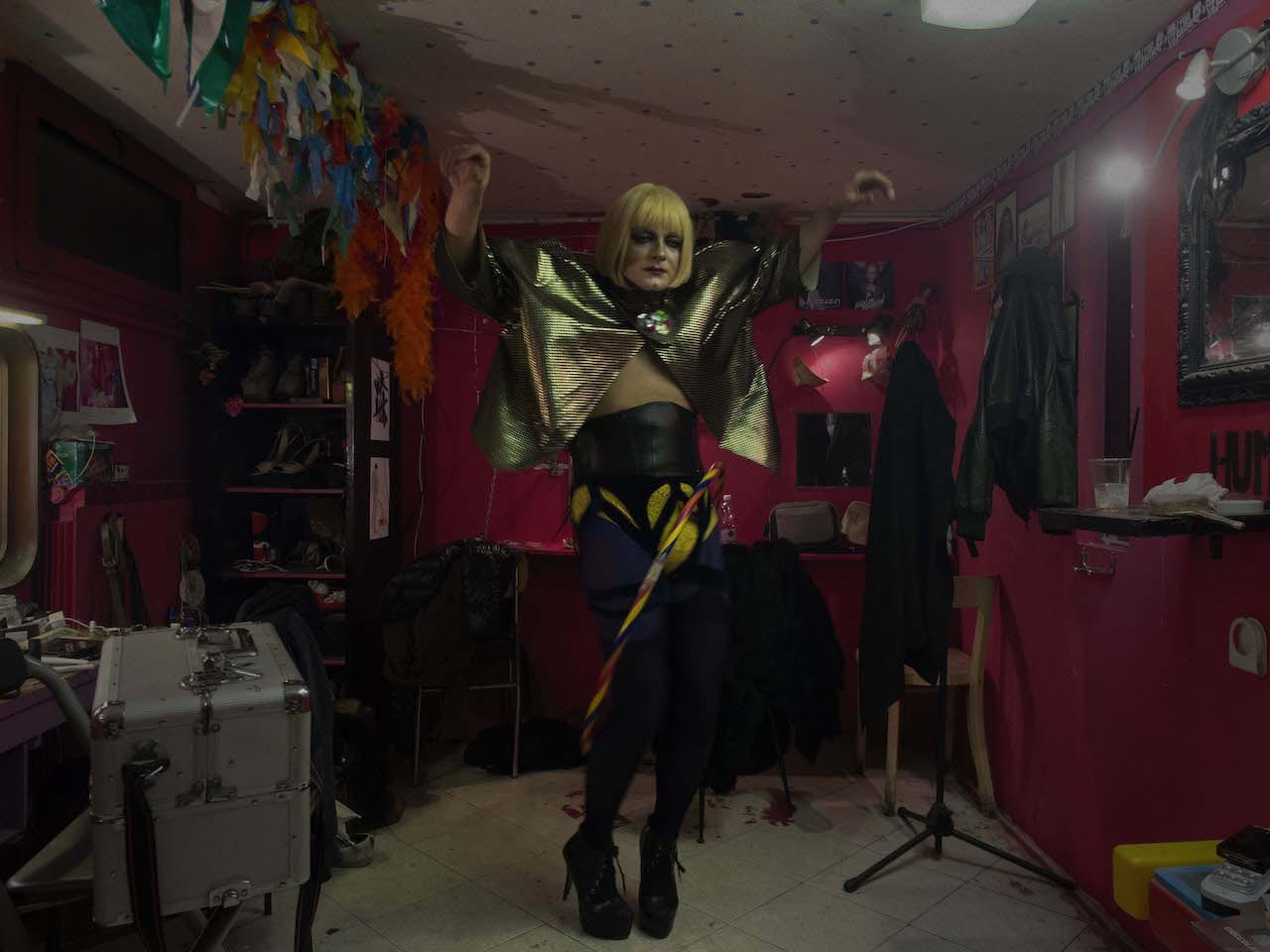
BJP: How did you get into photography?
Valentina Neri: After attending a Milan-based photography school [Cfp Bauer] – through which, paradoxically, I wasn’t in contact with the photography world at all – I started a three-month internship at Cesura, an Italian photography collective. Luckily, those three months turned into six wonderful years of growth, during which I perfected the art of photography in all its forms.
BJP: What kind of photography are you interested in, and how would you describe your style?
VN: I don’t have a favourite kind. I like finding something new in photography, when it attracts me beyond the topic and the typology; unfortunately – or luckily – I’m not a fanatic. Nowadays, style has become a prerogative rather than something one can pleasantly discover after years of work. I always try not to think about style; instead of being curbed by it I want to work freely, varying and experimenting. I can say that I have noticed femininity in my work, and this has interested me because it is an aspect that doesn’t represent me a lot, character-wise.
BJP: When did you start this project and how did you get access?
VN: By 2014, I had already been a part of Cesura for a few years. I felt the urge to commit to a new long-term project to prove to myself that I had got to a certain stage. Despite not having any specific ideas, I started developing an interest in the LGBT+ world. A colleague gave me the contact of a friend, who in turn invited me over for a beer. After arriving at our rendezvous, a drag queen with only half her make-up done opened the door. I found myself in a club that looked more like a basement, it was quite rough and unpolished. Despite this, the atmosphere was almost sophisticated and the feeling was like being in a family, where everyone badmouthed each other but in the end loved one another. They welcomed me immediately and gave me freedom, which made me feel comfortable from the start.
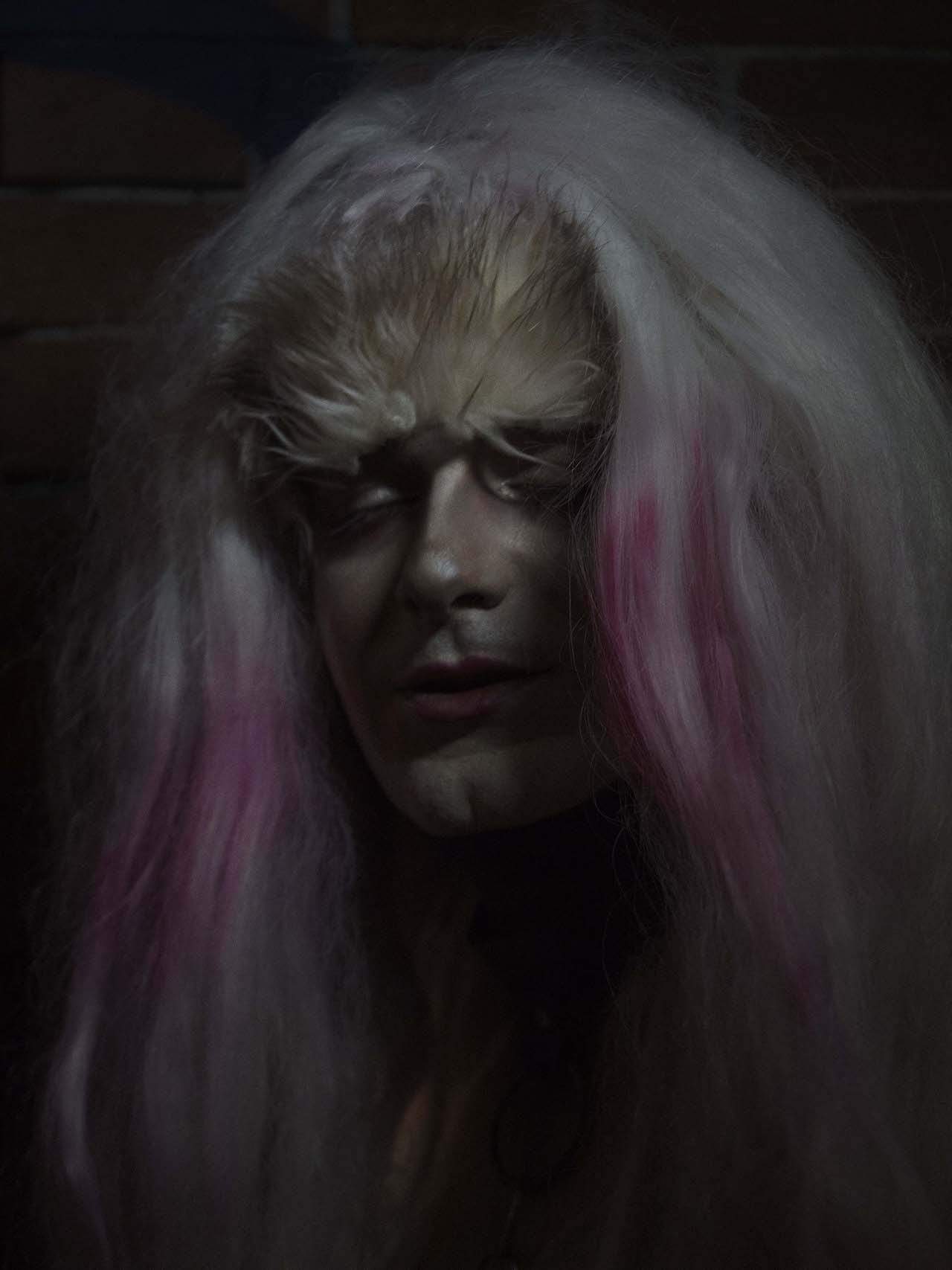
BJP: I like the way you use light in your work. It’s very dark, but there is often a coloured light, or bits of light coming through to illuminate parts of the face or body. What effect did you want to achieve with the lighting?
VN: Thanks! I always use natural light from the environment I work in because it amuses me more, it’s like having to make something with what you have. Among the best things about photographing the Toilet Club, was the search for details that were lit up for just a few seconds by the club’s colourful spotlight. Light exists because darkness exists, and I especially like light when it’s surrounded by darkness.
It was as if those lights were helping me by pointing at the subjects, and when I would find something that attracted me I would photograph it. That’s why most of the photos are portraits, because they are fantastic when illuminated. So, of course, the body of work is very dark, but by using a flash I would have felt a bit arrogant; why would I want to illuminate differently something that was already so beautiful?
BJP: Do you shoot digitally and do you use post-production?
VN: I started by learning the analogue method – film, darkroom, and attempts are fundamental to learn how to take photos and master the technical aspects. After that, I shifted to digital and found myself comfortable with it. I never use flash. This often takes me to dark results, so the maximum post-production I do is to slightly adjust exposure and fix certain digital damage.
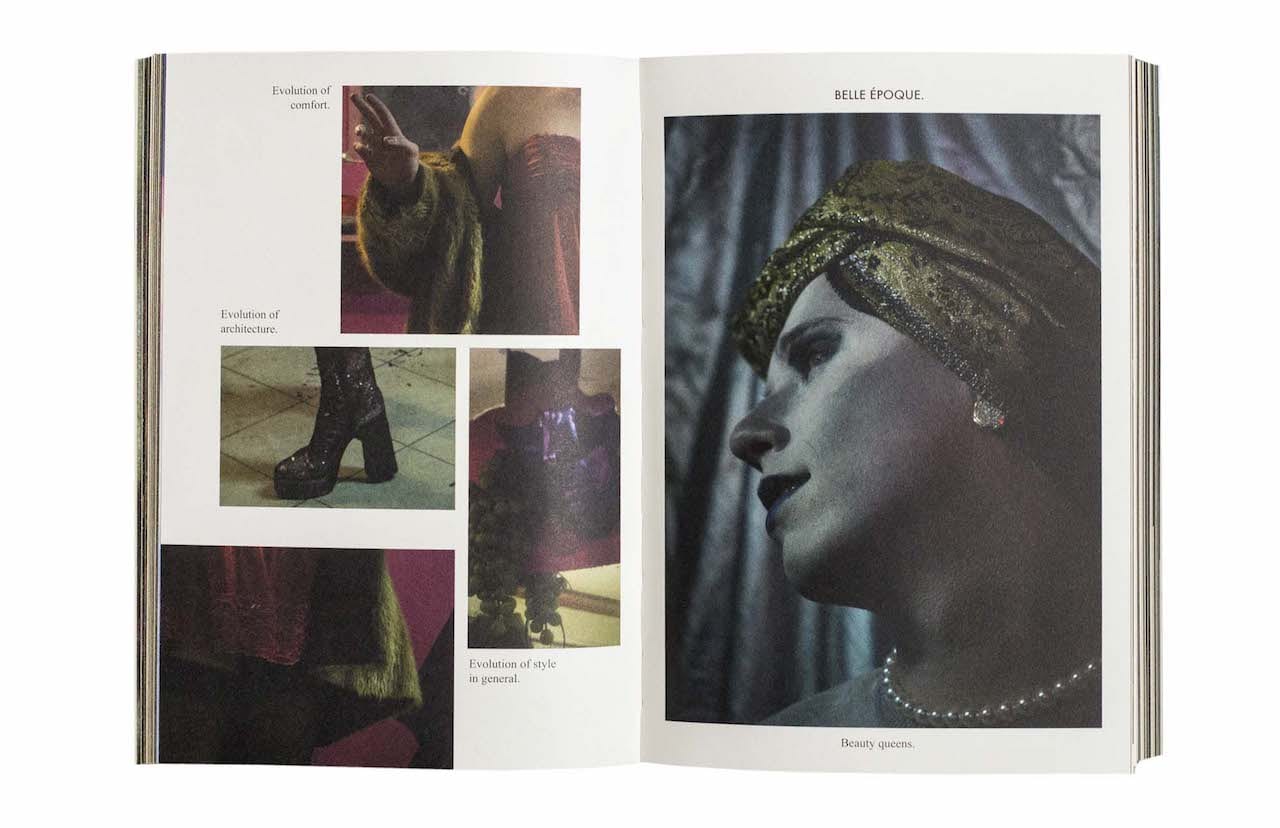
BJP: The book’s design is really playful, can you talk about how it relates to the subject matter?
VN: Have you ever gotten into an argument with a drag queen? You would go crazy because she will always win. She will tease you; she always has the answer for everything, she mocks everything and everyone, she fools around, and will never arrive second-place. They are natural entertainers. I couldn’t perceive this aspect in the photographs but to me, this project always had its arms open to new possibilities and new expressions, so I decided to combine those ‘serious’ images with some text that was as ironic as their attitude. This contrast worked for me.
BJP: How about the structure? There are numbered chapters, is it laid out in any particular order?
VN: During my research, I stumbled upon a copy of the Scena Illustrata. It’s a publication established in 1884 that tells the story of Italy through art, literature, sports, politics and current events by using the style of its time, often with an ironic, personal, and raw language. This pushed me immediately back to Toilet Club’s atmosphere. The copy I had was published in 1941, so naturally, its style was influenced by the fascist era. This created a perfect short circuit – why not tell the story of this group of drag queens, who have fun in such a free and emancipated way, and use the graphics and linguistic style of 1941 fascist Italy?
I created 24 chapters; the first one is called The Night and the last one is called h24, because I photographed every Saturday evening for three years. Looking back, it was like one big night, always the same but constantly changing, full of small stories in which the characters act.
The various chapters are laid out as single events within one big story: Questions, Bad attitude, Italian taste, Art and entertainment, up to Effects of failure and consequent Recovery attempts, ending with Scientific issues, an ironic way to underpin the obvious – and often forgotten – fact that both men and women come from apes, so drag queens do too.
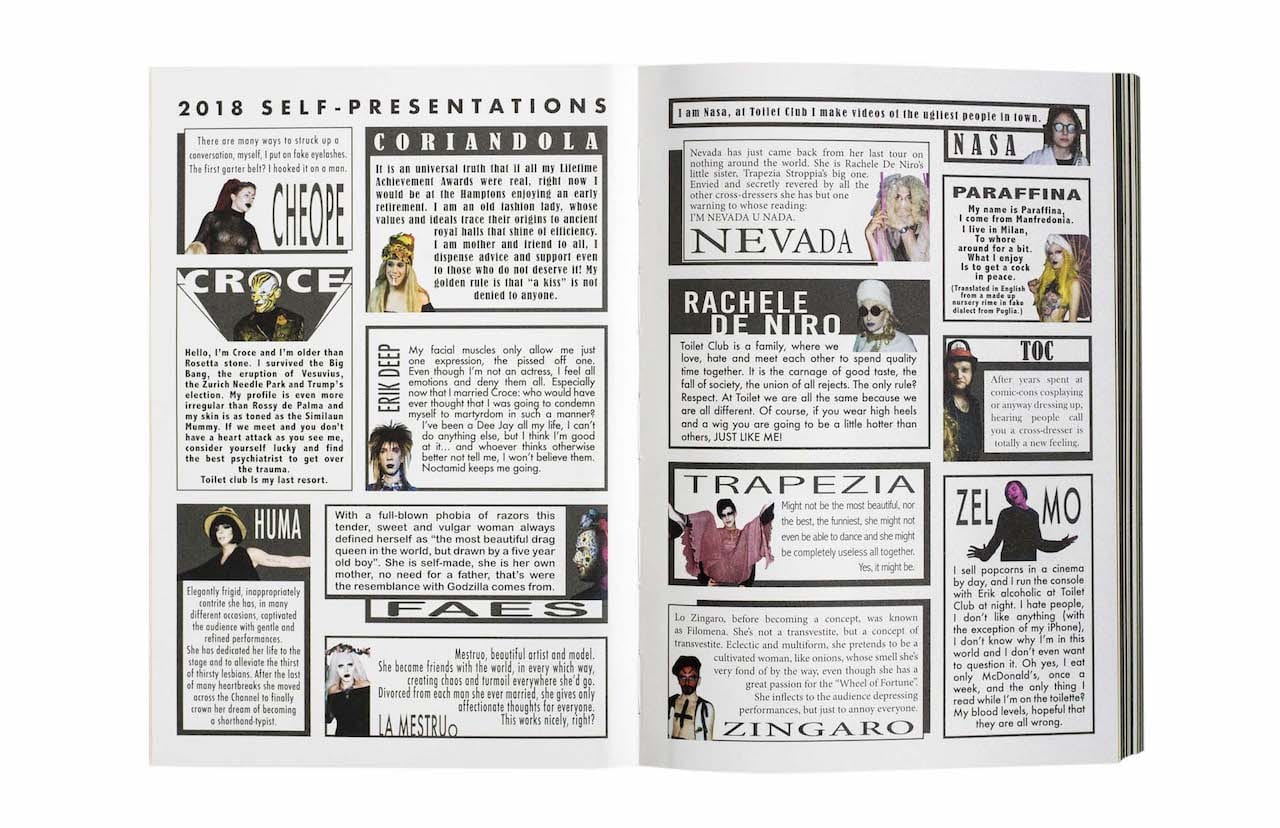
BJP: In the book there are references to famous artworks, such as Picasso’s Portrait of Gertrude Stein. What’s the purpose of these references?
VN: Just like in the Scena Illustrata, I wanted to insert a number of historical and artistic references; this has helped me give the book a modern twist, so as to bring back the reader to the real world once in a while. There’s Whoopi Goldberg, Ivanka, Moby Dick, and many other personalities that helped me have fun with the book’s main characters. It took me more time to make the book than to actually take the photographs. I did this to put myself out there, learn something new, and ultimately have fun.
BJP: Did you want to address the political or social aspect of being a drag queen at all?
VN: The paradox lies in taking inspiration from a 1941 publication whilst living in a historical time that is rapidly becoming right-wing, and in which the LGBT+ movement is often exploited. Without taking a specific stand, I wanted to mix two opposite worlds.
We are moving forward, in recent years we went from standard 1980s drag queens to diversified and richer genres, thanks to YouTubers and TV shows such as Ru Paul’s Drag Race, that everybody is watching now. Up until the early 2000s things were different; there were only a few clubs that would be friendly and relaxed, with only a few drag queens on stage or close to the DJ.
Now everything is more accessible, the audience has changed a lot and gay club nights are for everyone – lesbians, transexuals, straight couples, or just people who are looking for something different. However, we still don’t see men walking down the street in full drag. There’s still a lot of stigma in Italy, and drag queens still belong to the night scene rather than everyday life.
www.valentinaneri.com Almanacco Toilet Club by Valentina Neri is published by Cesura, available to purchase for €30 www.cesurapublish.com
